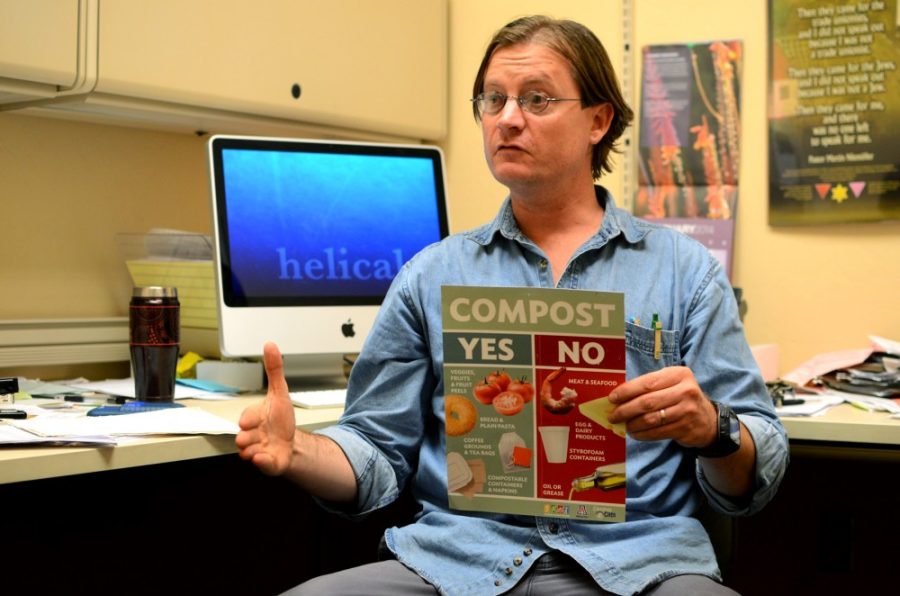The Arizona Student Unions recently partnered with the local San Xavier Cooperative Farm to provide campus with fresh, sustainable produce.
San Xavier is a certified farm that grows naturally and does not use herbicides or pesticides. The farm spans roughly 1,700 acres and is operated by the Tohono O’odham tribe, said Chet Phillips, an Associated Students of the University of Arizona graduate assistant for sustainability.
Michael Omo, senior executive chef of the Arizona Student Unions, said it is ideal to import foods from under a 200 mile radius. The farm is located about 15 miles south of campus, which falls within the sustainability radius.
“If you’re a little bit further out than that, it doesn’t stay within what we’re trying to do,” Omo said. “That’s what makes it a little more difficult for us … to get that ripe produce.”
It’s often hard to get fruits and vegetables within that range in between seasons, but Omo said he has high hopes for the food sold at the student union.
“Personally, I would think that we should be able to get at least 20 to 30 percent [of produce] from within that range,” Omo said. “I can’t tell you where we’re at exactly right now, but I would assume more in the 5 to 8 percent range.”
The partnership with the San Xavier Cooperative Farm is expected to bring in beans, squash, tomatoes, chili peppers and melons, Phillips said.
Phillips said the partnership between the Arizona Student Unions and the farm was started because of the UA’s past affiliation with San Xavier.
“It started by a partnership with Compost Cats and San Xavier farm, where they gave us space to bring scraps out … and make compost,” Phillips said. “In return, we actually give some of our compost to San Xavier farm, and they spread it on their fields to help fertilize [them].”
Jon Levengood, the retail dining manager of the Student Unions, and Omo worked with Phillips and Students for Sustainability, an ASUA program, toward an agreement with San Xavier Cooperative Farm.
Four years ago, the grass-fed beef program was introduced at the Cellar Bistro. The patties — made of free range, grass-fed beef without the addition of hormones or antibiotics — were such a hit that all UA-specific restaurants, such as Cactus Grill and Highland Market, integrated them into their menu, Levengood said.
“I think the whole farm movement has really picked up the last few years,” Levengood said. “I think there’s more of a buzz about going local than the whole organic thing a few years ago … so it is something that our new freshmen coming in are very aware of and very eager to participate in.”
The partnership between San Xavier, and hopefully more farms in the future, will help create a more sustainable campus food system, Phillips said.
“We have food scraps that go out to San Xavier instead of going to the landfill, where they create methane emissions,” Phillips said. “We turn them into something useful, fertilize San Xavier’s crops, and then some of those crops come back for students on campus to eat. That’s awesome.”
Phillips and Students for Sustainability are currently trying to arrange another partnership with a second local farm called Sleeping Frog Farms, which is located out in the Cascabel, Ariz., area.
Besides creating a healthier and more sustainable food system on campus, Phillips said he thinks that arrangements with farms would have other benefits.
“The UA buys a lot of food to serve to the campus community, which means that the UA could play a really powerful role in relocalizing some of our food systems,” Phillips said. “If the UA supports local farmers and local ranchers, that would mean a lot for keeping them in business.”









